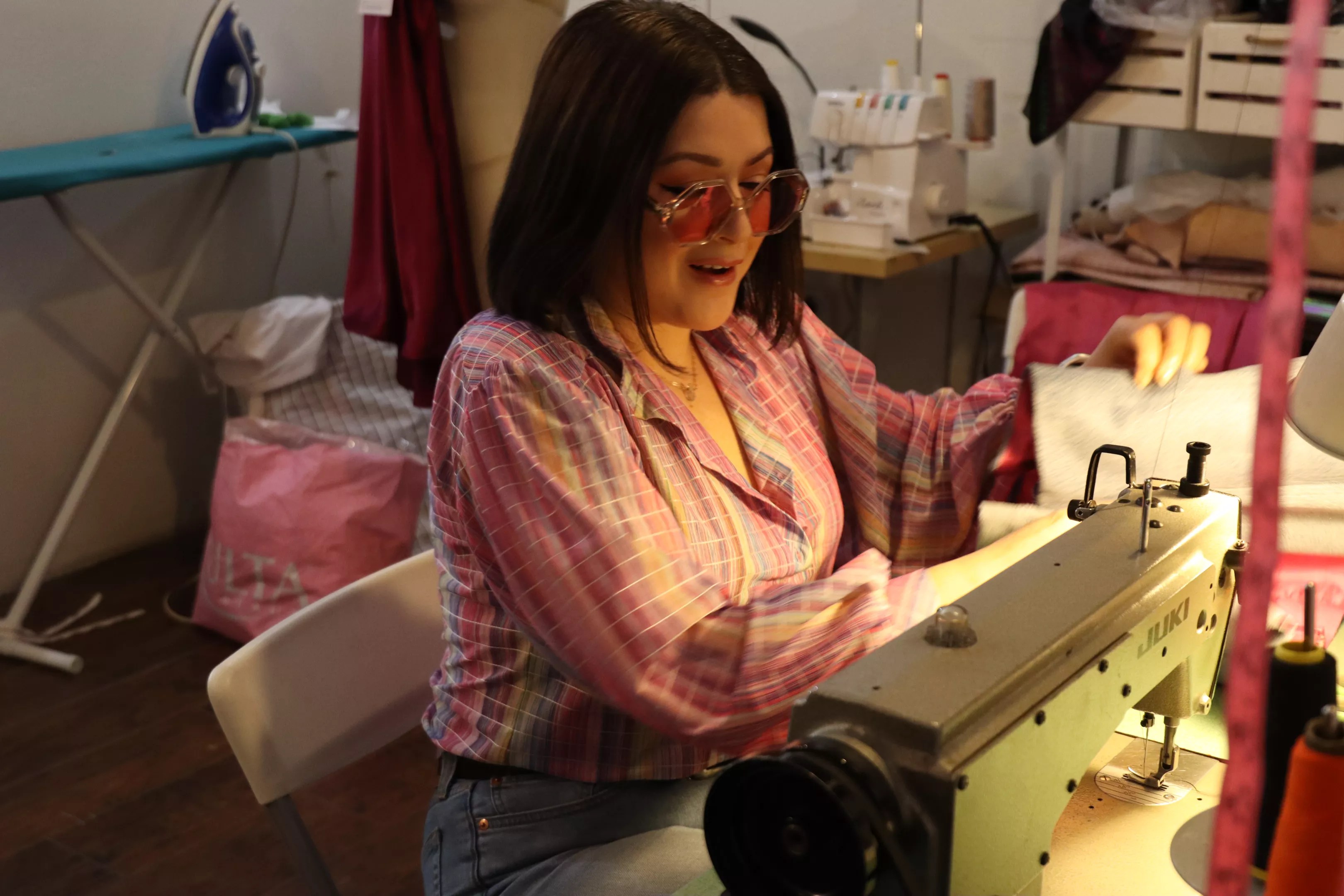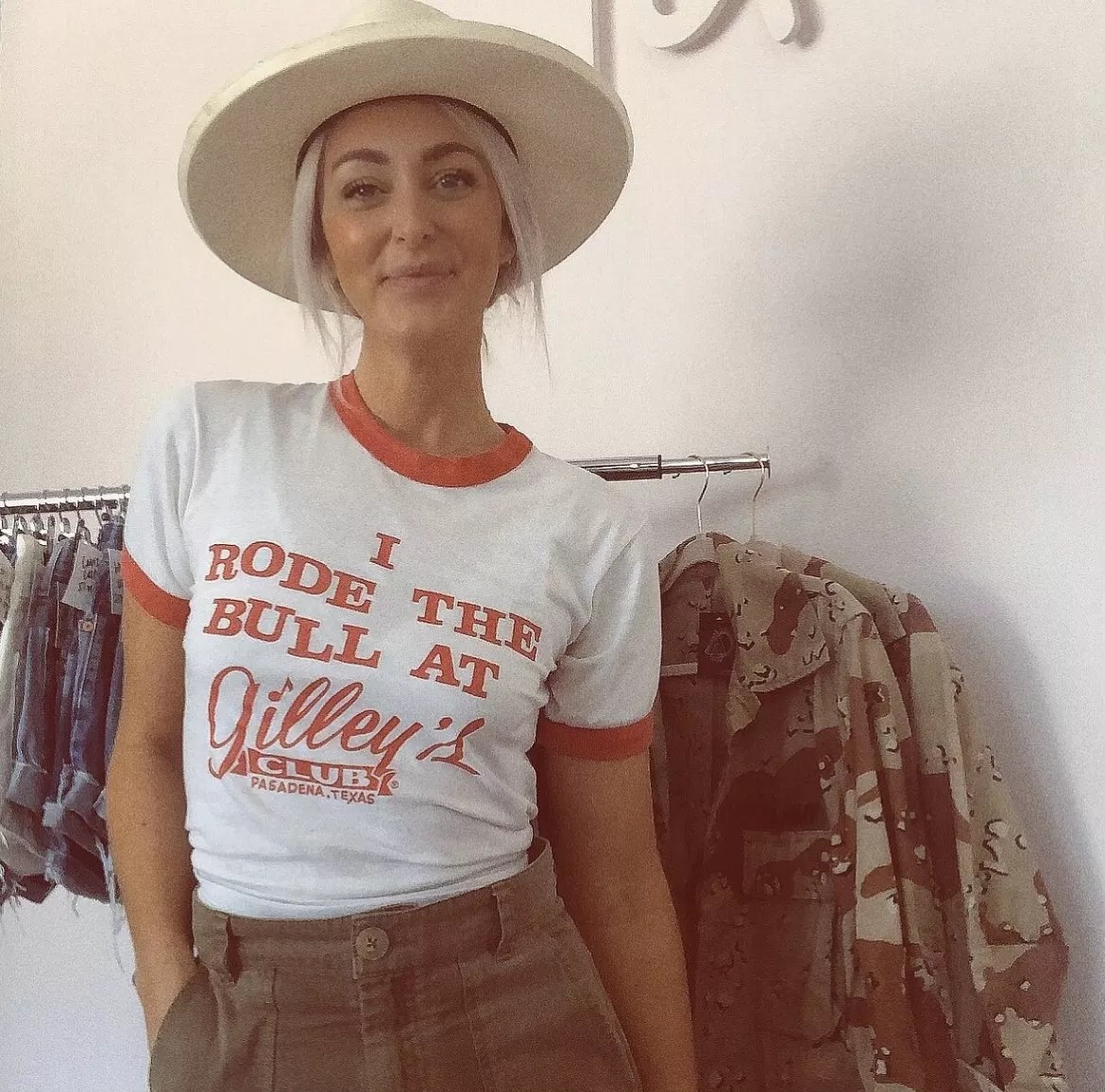
Sarah Bull

Audio By Carbonatix
Get in loser, we’re going thrifting! Fashionistas are bringing back the early 2000s and ’90s, Cher Horowitz inspired plaid skirts and all, but they are doing it differently this time. Shoppers are fulfilling that retail therapy need by swiping their cards for environmentally conscious garments.
Fashion hauls are transitioning from troves of discount fast fashion to sustainably made, upcycled or thrifted treasures. Gen-Zers are shoving these new eco-friendly practices into the spotlight. With hashtags #sustainablefashion, #secondhandseptember and #whomademyclothes trending on all platforms, the fashion industry has no opportunity to turn a blind eye to consumer demands for sustainability and ethical practices as the movement gains traction.
“It was such a buzzword last year, and I think every storefront wanted to know how they could put that on their brand whether it was from something tiny, like sustainable tissue paper when they wrap your package or sustainable tags or reusable bags,” says Sarah Bull, owner of Penny Lane Vintage and stylist. “But I think it’s much, much more than that. And it goes deeper into the products that you’re selling.”
Bull and her fiancé, Dallas musician Keite Young, are releasing a sustainable fashion line anticipated for next spring. Bull and Young are working with fashion designers Stella DeLaughter and Emilia Metry on a label called PENXSTEM. The line is called “These Clothes Are Not New,” and its designs are composed of repurposed drapery and are oriented around a zero-waste manufacturing concept to maintain an environmentally conscious business model that veers away from “greenwashing.”
Greenwashed marketing tactics often included slapping a sustainability label on their brand for relevancy, but today’s consumers are much savvier about what they’re putting on their bodies. With the rise in education through social media initiatives, fashion enthusiasts are actively deciding to opt out of supporting the exploitive cheap textile fast-fashion production model.
Chelsea Davis, owner of Elite Image Management, which specializes in sustainable runway production and stylist services, says her clientele, much of which is made up of social media influencers, has transitioned away from promoting brands that contribute to global degradation.

Elia De Leon, dressed in her vintage finds, provides fashionistas with sustainably sourced outfits that can’t be replicated by fast fashion.
Desiree Gutierrez
“Clients say, ‘I do not want fast fashion, I do not want to hurt the environment, I want it to last and I don’t want that cheap stuff,'” Davis says. “They’re willing to spend a little bit more on something better, something quality, or they’re like, ‘Can I make something I’ve already have with maybe like a new jacket?'”
According to the Environmental Protection Agency, the largest source of municipal solid waste is clothing. In 2018, 13 million tons of clothing contributed to textile waste, an amount that has increased at an alarming rate since the 1.3 million tons of clothing waste in 1960.
To avoid making a literal dump out of the planet, shoppers are now minimizing their closets, making use of what they have and fulfilling their Carrie Bradshaw dreams with thrifted, upcycled or sustainably sourced materials. However, the sustainability trend goes beyond avoiding the accumulation of a hogwash of textiles.
“If as a collective we’re able to change the trends, the large companies might change, too,” Davis says. “But that’s going to be a while. For our health over time, these fabrics on our body like polyester, which is made out of oil and gas, are not amazing to rub on our skin all day.”
Yep, you heard that right. That cute 40-percent-off-sale item you snagged, is leaving a percentage of oil and gas all over your body. Polyester is composed of petroleum and releases toxins into the environment at every stage of production.
If that was not bad enough, many fast-fashion production systems have been linked to forced labor, human trafficking and child labor.

Penny Lane Vintage designer Sarah Bull.
Sarah Bull
Local fashion designers have opted for a hands-on approach to procuring their lines.
“Sustainability, it’s very complex, there are so many rights and there are so many wrongs, and there are so many opinions,” says Elia De Leon, fashion designer and owner of Elia De Leon Vintage, Handmade and Alterations. “As a business owner and as a designer, I’m doing my part when I think in the way that I design, in the way that I source things, and in the way that I think about the future of my company – how is sustainability going to look for me as a small business?”
De Leon manufactures her designs by hand using repurposed materials. A design can take her anywhere from a few hours to a few weeks to produce in house at her storefront.
De Leon says her American dream is sustainable and advises consumers to allow themselves grace when it comes to sustainability.
“Don’t be too hard on yourself,” De Leon says to those waiting to join the sustainability trend. “It’s the baby steps that we make, and it’s whatever is accessible to you. And that looks different for everybody.”